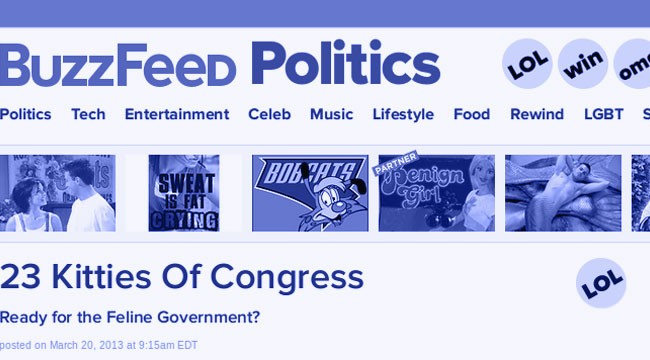There is something quite addictive about listicles. Gone are the days when entertainment magazines and online gossip sites were the exclusive list-makers. ‘The 10 Hottest Men in Hollywood’, ‘5 Red Carpet Looks For You’, or ‘20 Diet Tips Celebrities Don’t Want You To Know About’ are only a small selection of what was formerly the preserve of certain media outlets. Now the cultural zeitgeist is one driven by a proliferation of lists, catalogues, and indexes online. We have Friends quotes with matching gifs, a ‘menu’ of the vocal mishaps of former US President George Bush, and the ‘21 Times Microsoft Word Was Trolling You’ all as recent listicle examples listed on BuzzFeed.
Many of us mediate our media consummation through these lists. Others, like me, are suspicious of subscribing to what is often an entirely fragmented and arbitrary mode of news diluted through banal pop culture references. But these lists are nevertheless indicative of our postmodern and over-saturated visual culture. We are obsessed, if not a little curious, with receiving instantaneous reports, image-heavy representations of new stories, and lists that deconstruct (and dilute) an event via other cultural texts from our collective pop culture history.
The popularity of gifs, memes and listicles underscore our fragmented, and simultaneously, overloaded visual culture, which flourishes with an excess of images, videos and visual media online. It is now with great pleasure that many of us turn to BuzzFeed lists and indulge in an article or two. We do it to stave off boredom on the train or indulge in some nostalgia by testing our knowledge of former Oscar winners or plot holes from Seinfeld. As wary of listicles as I am, I do indulge in the odd cat/dog/family lisitcle BuzzFeed so enjoys circulating. Indeed, these lists record everything from pop culture to politics so that we may savour a story through an arbitrary number of dot points.
It is of no surprise that BuzzFeed and other similar websites have achieved an unequalled popularity on the internet by aligning their news and political reporting with these lists (and, of course, as click-bait). One central pleasure of a BuzzFeed list is their ability to point out the arbitrariness possible in our cultural consumption. Are the defining moments of the television show Law and Order as few as 21 or as many as 48? Such a question it would seem warrants further investigation. And hence, someone, somewhere can cobble together images, gifs, videos, and other visual accoutrement to provide a total ‘profile’ of the program or text.
Many of these popular listicles engage with a nostalgia that occupies the cultural conversation. The popularity of Instagram filters, the reappropriation of old films into new YouTube videos, and the resurgence of a number of new magazines in physical copies all demonstrate nostalgia. The internet pieces back together many of the defining cultural texts of our time including television shows, films, music videos and more. It is a vast archival project of a Frankenstein kind.
While many may condemn my claims and be suspicious of their substance as ‘journalistic’ pieces, listicles exploit traits of ‘postmodernism’. In particular they reconstitute the original meanings of a certain film or television program through the use of gifs or memes, reorganise them in an arbitrary pattern that does not follow the original trajectory of the film or video and present a new narrative/story for readers .
Some memorable listicle examples of late are ‘141 Thoughts I Had While Watching Fifty Shades of Gray‘ or ‘32 Paintings Paired With Quotes from Mean Girls.’ It would seem that a number of mainstream cultural and news publications are also adopting the tricks and stylistic tropes of BuzzFeed and other list-like articles.
No doubt listicles’ popularity on social media is a reason for embracing them. In addition these articles’ engagement with popular film and TV culture, nostalgia culture, and a litany of other texts, like 1980s Spandau Ballet ballads to 2000s Cameron Diaz rom-coms, provide a democratic means to sometimes inaccessible cultural or political subjects. For example, an article on BuzzFeed last year explained post-structuralism through the use of ‘hipster beards’ and was very popular for the website – and the author. The number of familiar pop culture references – particularly those from American television or Hollywood cinema – is what also makes many of the lists particularly pleasurable and inclusive for their readers. Listicles enable a direct engagement with subjects that would sometimes otherwise require a certain set of predisposed or specialist knowledge. They also let audiences flex their pop culture knowledge and affirm their appreciation for that TV show or music video, while perhaps seemingly educating themselves on the events in Australian parliament or brushing up on the history of Hollywood cinema.
But what is also true is that a lisitcle is in many ways not about the subjects it is exploring (eg post-structuralism) but about the pleasure in ironising or parodying the cult or popularity of a new culture trend (eg hipster beards). Listicles do require some level of cultural capital and knowledge in order for them to be accessible and appreciated by a mass audience.
My ambivalence towards these types of articles is the belief that they corrode the necessity and importance of other long-form essays and suggest that political, and more importantly, cultural issues can be successfully and succinctly mediated through the list. Perhaps I’m Sontag-esque in my suspicious of the lisitcle. Perhaps I need to wait for more long-form essays to unpack and valorise the necessary and requisite politics of listicles in today’s journalism. Whether or not this new wave of writing and representation in the cultural zeitgeist will have currency in years to come is not easily answerable. But for the meantime I can for say with confidence that 35 moments and not 25 define the TV show Law and Order SVU. Sorry BuzzFeed. If you want the real deal, I’ve got it for you.



